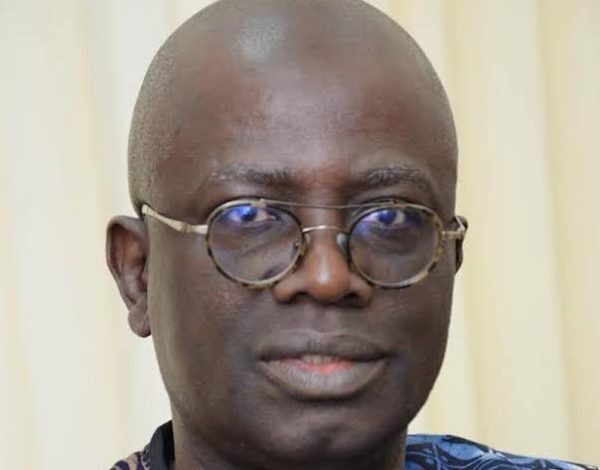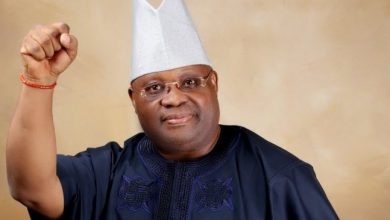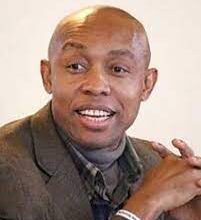The Illusion of Local Government Autonomy

Olusegun Adeniyi
The controversy began in April 2004 following the creation of 37 Local Government Areas (LGAs) by then Lagos State Governor, now President Bola Tinubu. Riled by what he considered to be an impudent act, then President Olusegun Obasanjo directed that funds for the LGAs in the state be withheld until Lagos reverted to the 20 LGA structure. As I highlighted in my book, ‘Power, Politics and Death: A front-row account of Nigeria under the late President Yar’Adua’, Tinubu filed a lawsuit against the federal government, urging the Supreme Court to determine the propriety and legality of Obasanjo’s action. And in a somewhat controversial judgment, the apex court declared the 37 LGAs created by Tinubu “inchoate and inoperable” since the National Assembly had not listed them in the Constitution. But the same court also ruled that the federal government had no right to withhold the funds.
With both the federal government and Lagos state claiming victory in what had become a personality clash between Obasanjo and Tinubu, prominent Yoruba citizens intervened through a committee of elders led by a former Attorney General of the Federation, the late Prince Bola Ajibola. That effort culminated in the 37 Lagos LGAs being rechristened Local Council Development Authority (LCDAs) by Tinubu. This brought a temporary truce and Obasanjo ordered the release of a first tranche of N10 billion from the entitlements of the 20 LGAs then estimated at about N21 billion. When Tinubu insisted on conducting elections for the 37 LCDAs, Obasanjo viewed it as an affront. So, for the rest of his tenure, funds for Lagos LGAs were not paid. This was the situation at the time the late President Umaru Musa Yar’Adua assumed office on May 29, 2007. Following consultations, he ordered the release of the accumulated council funds to Lagos State under Governor Babatunde Raji Fashola.
I therefore find it ironic that Tinubu would drag governors before the supreme court over local government funds, even though I support the idea behind it. With the apex court judgment, four key issues have been settled. One, section 162 of the 1999 Constitution is now completely redundant. Two, all funds standing to the credit of the 774 LGAs in the federation account shall henceforth be paid directly to them. Three, governors can no longer dissolve democratically elected councils, and/or replace them with caretaker committees. Four, no funds will be released to councils run by caretaker committees. But several issues beg for answers with perhaps the most significant being: What happens to the funding of LCDAs created in some states by their governors? Incidentally, Tinubu was the first governor to take that route before others followed, which is why many governors seem surprised by his move.
As I said, I support the principle behind the judgement given how governors play with local government funds. Besides, since President Muhammadu Buhari failed to achieve the same objective with ‘Executive Order 10’, I understand why Tinubu chose the apex court route. My main concern is that I do not think the judgement will change anything concerning the administration of local government in Nigeria. And that is why I believe we require a reform that is more practical. In his piece, ‘Let the Third Tier Breath’, published yesterday, Special Adviser to the president on Information and Strategy, Mr Bayo Onanuga raised pertinent issues. But I do not share his optimism that the apex court judgment will make much difference to the people at the grassroots.
Perhaps the only person who has spoken to the heart of the issue is Shehu Sani, a civil rights activist and former Senator from Kaduna State. In his characteristic way of reducing serious issues to humour, this was his summation of what will follow the judgement: “’Your Excellency Sir, I received the alert (from the federation account). What should I do with it?’ Despite the Supreme Court ruling, many LG chairmen will still behave like this when their account is credited directly,” he wrote. Before drawing my conclusion, I crave the indulgence of readers to reproduce my 27 August 2020 column, ‘Democracy and the Grassroots’.
=====================================================================
The 1999 Constitution (as amended), provides that each of the 774 local governments in the country is vested with powers to establish and maintain cemeteries, burial grounds and homes for the destitute or infirm; license bicycles, vehicles, canoes, wheel barrows and carts; regulate slaughter houses, markets, motor parks and public conveniences as well as construct and maintain roads, streets lightings, drains, parks, gardens, open spaces etc. They are also to register births, deaths and marriages and name roads, streets, and houses, while providing and maintaining public conveniences and refuse disposal among other functions. Perhaps most significantly, local governments are expected to provide and maintain primary, adult and vocational education and health services.
These, no doubt, are heavy responsibilities for which 20.60 percent of our total national earnings is allocated from the federation account. That is one fifth of the entire resources accruing to the nation. Available data from the Federation Account Allocation Committee (FAAC) indicates that no less than about N25 trillion has been shared by the 774 local governments in the past 21 years. Even if we use the prevailing exchange rate, that still exceeds $60 billion! For instance, last year (2019), all the local governments shared N1.649 trillion; In 2018, they shared N1.667 trillion; in 2017, they shared N1.502 trillion; in 2016, they shared 1.011 trillion; in 2015, they shared N1.205 trillion; in 2014, they shared N1.557 trillion; in 2013, they shared N1.708 trillion; in 2012, they shared N1.535 trillion; in 2011, they shared N1.255 trillion; in 2010, they shared N1.328 trillion; in 2009, they shared N976.817 trillion and in 2008, they shared N1.206 trillion.
Despite such huge financial resources, local governments are not playing their roles because governors have conspired to render them completely prostrate. The national president of the Nigeria Union of Local Government Employees (NULGE), Comrade Ibrahim Khaleel once argued that “the concept of bringing governance closer to the people through a third-tier participatory form of government has not materialized in Nigeria.” After tracing the history of reforms of local government from the Dasuki Committee of 1976 to the Etsu Nupe report of 2003 and several Supreme Court rulings, Khaleel gave a damning verdict: “there is no state in Nigeria where one form of illegality or the other is not committed with the funds of local governments. Through over deduction of primary school teachers’ salaries; spurious state/local government joint projects, sponsoring of elections, taking over the statutory functions of local governments and handing them over to cronies and consultants; non-payments of pensioners and non-utilization of training fund despite the mandatory deduction of stipulated percentages for these purposes, we can go on and on. Most of these shameful activities are known to all of us.”
To be sure, local government administration in Nigeria has always presented a challenge, but it has never been as bad as it is now under the current dispensation. Even though democracy is a never-ending process of inquiry that requires the validation of voters, what we have witnessed over the years in the name of local government elections has been no more than a charade. For the benefit of readers, let me highlight results of the last local government polls in all the 36 states of the federation (in alphabetical order).
In December 2016, the Abia State Independent Electoral Commission conducted LG polls, where almost a million people were recorded as having voted. The ruling Peoples Democratic Party (PDP) in the state won all 17 chairmanship and 292 councillorship seats. “There was no election anywhere in the state,” the All Progressives Grand Alliance (APGA) secretary, Sunday Onukwubiri, told reporters. A year earlier during the 2015 general election, Governor Okezie Ikpeazu had secured 264,713 votes (representing 59.4 percent of total votes cast) to defeat Dr Alex Otti, the then APGA candidate who secured 180,882 votes (representing 40.6 percent of total votes cast). Yet, APGA could not win any seat at the LG polls. That has been the pattern in all the states where the Independent National Election (INEC) results are at variance with the figures churned out by the state electoral commission that conducts LG polls.
Last December (2019) in Adamawa, candidates of the ruling PDP in the state won all the 21 chairmanship and 226 councillorship seats. Akwa Ibom is billed to conduct the local government election on 31st October this year, but the APC has already seen the handwriting on the wall by threatening a boycott. In the last one conducted in December 2017, PDP won all the 31 chairmanship and 329 councillorship seats. “Details of scores will be made available by the field operations/logistics department of the commission,” according to the chairman, Aniedi Ikoiwak, who only gave round figures without providing any breakdown of the results!
In Anambra State where council polls have not been held in the past six years, businessman, Chief Arthur Eze, has issued a stern warning to Governor Willie Obiano: “I want him (Obiano) to know that since he has refused to hold local government elections, he must be ready to vomit all the allocations and revenues of the councils at the end of his tenure. He will not go free. I have taken up the matter formally in writing with President Muhammadu Buhari concerning all Southeast governors who have refused to organise council elections but chose to unilaterally usurp the functions and finances of that level of government. They will all be called to account. None will get away with it.”
It will be interesting to see how Eze executes his threat but in the last council polls held in January 2014 under Governor Peter Obi, the ruling APGA in Anambra State was ‘magnanimous’ enough to cede some councillorship seats after taking all the 21 chairmanship positions. In Bauchi State, Governor Bala Mohammed had promised to conduct council polls in June this year before COVID-19 put a spanner in the works. But in the last one conducted 13 years ago, it was 100 percent victory in both the chairmanship and councillorship positions for the then ruling PDP in the state!
On the eve of the Bayelsa State gubernatorial election last year (2019), the PDP government at the time conducted council polls, winning all eight chairmanship positions and 105 councillorship seats. A few weeks later, it was the APC candidate who won the gubernatorial election conducted by INEC with a comfortable margin. It took the intervention of the Supreme Court for the PDP to win back the state on technical grounds that had nothing to do with how the people voted. In Benue State, COVID-19 did not prevent council polls from holding in May this year with the ruling PDP winning all the 23 chairmanship and 276 councillorship seats. But in deference to the pandemic, Borno State has postponed its own LG polls. In June this year, the ruling PDP won all the 18 chairmanship and 196 councillorship positions in Cross River State.
The January 2018 council polls in Delta State produced an interesting outcome. After winning all the 25 chairmanship seats, the ruling PDP in the state conceded a single councillorship position in Ward 2, Aniocha North local government area, the home base of the then minister of state for petroleum, Dr. Ibe Kachikwu to APC, winning the remaining 424 councillorship positions. Ebonyi will hold its council polls this Saturday. In the last one conducted in April 2017, PDP won all the 13 chairmanship and 171 councillorship seats. In Edo State in March 2018, the then ruling APC won all the 18 chairmanship and 192 councillorship seats. In Ekiti State, the last local government poll held in December 2017 and predictably, the then ruling PDP won all the 16 chairmanship and 177 Councillorship seats. In Enugu State where the poll held in March this year, the ruling PDP won all the 17 chairmanship and 260 councillorship positions. In Gombe State, the then ruling PDP won all the 114 councillorship and 11 chairmanship positions in the February 2017 LG polls. In Imo State, in August 2018, the ruling APC won all the 27 chairmanship positions and 636 of the 645 councillorship positions. In June 2019, the ruling APC won all the 27 chairmanship and 286 councillorship positions in Jigawa State.
In May 2018, what perhaps remains the only semblance of a competitive election was conducted by the Kaduna State Independent Electoral Commission (SIECOM). At the end, the ruling APC won in 12 local government areas, the PDP won in five local government areas, with results from three local government stalemated. In February 2018, the ruling APC swept all the 44 chairmanship and 484 councillorship seats in Kano State. In August 2014, the PDP cleared all the 34 chairmanship and 361 councillorship seats in Katsina State. In October last year, the ruling APC in Kebbi State won all 21 chairmanship and 223 councillorship positions. The last local government polls in Kogi state were held in 2013 and the then ruling PDP cleared all the 21 chairmanship and 225 councillorship positions. In Kwara State, the November 2017 LG polls also produced the then ruling APC as winners of all the chairmanship but conceded nine councillorship positions to the PDP.
Elections into the 57 LGAs/LCDAs of Lagos State were conducted in July 2017 with the ruling APC winning all the chairmanship positions. The party also won 369 councillorship seats while the PDP won four seats, and Accord Party, the remaining three. In May 2018, the ruling APC won all the 26 chairmanship and 147 councillorship positions in Nasarawa State. In December last year, APC cleared 24 of the 25 local governments in Niger State with PDP winning one. In October 2016, the ruling APC won the chairmanship positions in all the 20 LGAs and 37 LCDAs in Ogun State. The party also won 346 out of the chairmanship and 349 councillorship seats. In January 2018, the ruling APC cleared all the 389 councillorship positons in Osun State. In the May 2018 poll in Oyo State, the then ruling APC won all the chairmanship seats in the 33 LGAs and the 35 LCDAs.
In October 2018 in Plateau State, council polls held in 13 of the 17 LGAs. APC was declared winner in 11 (no figures were announced) with the remaining two stalemated, leading to a violent protest. In June 2018 in Rivers State, the ruling PDP won all the 23 chairmanship and 302 councillorship positions. In Sokoto, the then ruling APC (now PDP) won all the 22 chairmanship and 234 councillorship seats at the March 2016 local government elections. In June this year, after the Taraba State Independent Electoral Commission (TSIEC) chairman, Dr Phillip Duwe declared PDP candidates the winners for both chairmanship and councillorship positions in all 16 local government councils, he urged the defeated candidates and parties to understand that ‘leadership comes only from God.’ But after the February 2017 LG poll in Yobe, the state electoral commission chairman did not beat about the bush: “Having received and compiled the election results, all the 17 candidates of the APC in the chairmanship category are declared winners.” And in the council polls conducted in April last year by the then outgoing Governor Abdulaziz Yari of Zamfara State, his APC cleared all the 14 chairmanship and 147 councillorship seats.
The entire essence of voting is for citizens to decide how they are governed. But in a situation in which Nigerians have been conditioned to believe that exercising their franchise in local government elections is simply a waste of time, then something is wrong with our system. Therefore, to reform the institutions and practices that have placed structural roadblocks in the path of our democracy at the grassroots level, we must disempower the few who lord themselves over the many. Aside wasting enormous resources on these meaningless elections, the governors do not even pretend that they consider them serious. In Gombe some years ago, the state government engaged a contractor to supply ballot boxes for council polls. The contractor went to China for the procurement, but the election was conducted, and winners declared before the ballot boxes were eventually delivered. In Bauchi, a former deputy speaker of the state assembly (and a prominent member of the ruling party then serving as an aide to the governor) was once appointed chairman of the State Independent Electoral Commission!
In their book, ‘How Democracies Die’, Steven Levitsky and Daniel Ziblatt argue that while there is a general tendency to believe that a democracy is imperilled only by military adventurers, it is now the elected leaders who most often subvert the very process that brought them to power. These are men who have no qualms “rewriting the rules of politics to permanently disadvantage their rivals”, the authors wrote before adding, “The tragic paradox of the electoral route to authoritarianism is that democracy’s enemies use the very institutions of democracy—gradually, subtly, and even legally—to kill it.”
ENDNOTE:
As I stated in my October 2017 ‘Platform Nigeria’ presentation, the promise of good governance embedded in the theory of decentralization is being delivered in the breach in Nigeria today because accountability diminishes as you move from the centre to the other units: states and local governments. But to saddle the Independent National Electoral Commission (INEC) with the additional burden of conducting council polls, as suggested by Onanuga and other stakeholders, is not the right approach, all factors considered. In a country where every election ends in litigation, the problem of INEC would be compounded if it adds council polls to its assignments. Besides, the challenge of local government administration in Nigeria goes beyond money and the process of electing chairmen and councillors. The question we should ask ourselves is whether we need three tiers of federating units. In most federal countries, including the United States from where we photocopied the presidential system of government, there only two. What we have today is a Nigerian invention that has not worked.
To alter the trajectory of our country and bring government closer to the people, there must be institutional reforms, beginning with the charade we now call local government elections. But it cannot end there. In his column, ‘Refocusing the Debate on Local Governance in Nigeria’ a month ago, Waziri Adio, the Executive Director of Agora Policy, a think tank focused on development and governance, argued that “Nigeria is overdue for another and a more thoughtful reform of governance at the local level.” Central to the quest for improving local governance in Nigeria, according to Waziri, “should be how to creatively and sustainably deepen democracy, citizens’ participation and social accountability at the local level,” All these, he added, “should be the overriding focus of not just the ongoing debate but also of the next generation of local government reforms in the country.” I wholeheartedly concur!




